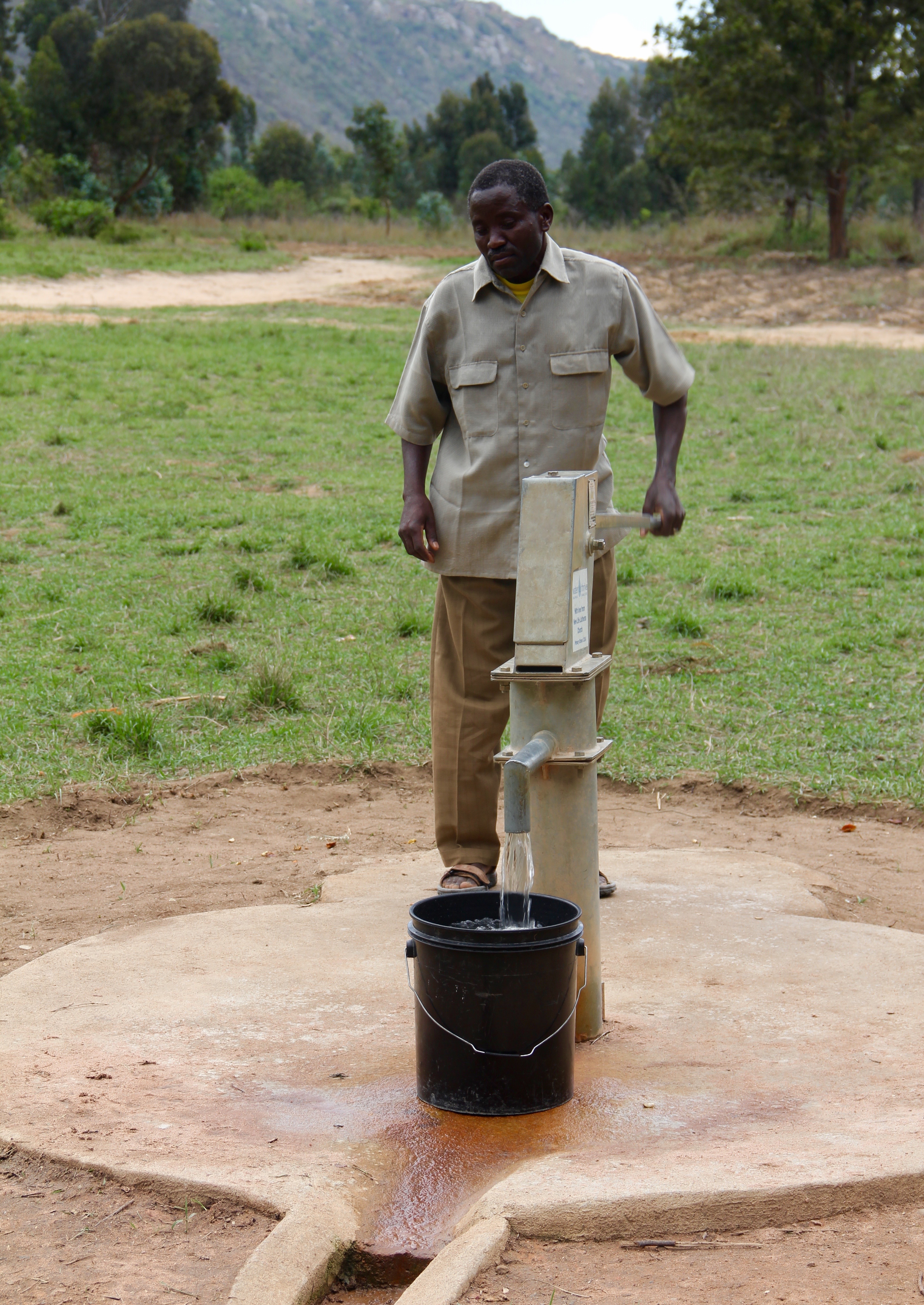
The relationship between hydration and cognitive function is well documented. Even mild dehydration can affect our moods, increase fatigue and decrease our ability to concentrate. These symptoms are particularly pronounced in children who don’t get enough water to drink.
Moody, tired, cranky and inattentive kids? Sounds like every teacher’s dream.
So spare a thought for Michael Msigwa. He’s been teaching at country schools in Tanzania for 24 years, the last 12 of which have been at the Kiponzero Primary School in Tanzania.
“I don’t think I ever really considered how difficult things were until the well was installed at the school,” he said. “There was a noticeable change in the children’s behavior after they started getting enough water to drink. In addition to all the health benefits, this well has made my job a lot easier.”
Michael teaches math, science and geography to all 600 of the school’s Year 1-7 students.
“To be honest, I never really gave it much thought,” he said. “I just thought ‘this is how children behave’ so I had a low expectation for how children should behave and what was an acceptable level of achievement.”
“It’s been quite remarkable to see how much they have changed now that they have ready access to all the clean water they can drink,” he added.
“Attendance has improved significantly as the children are not getting sick as often,” he said. “Also, there’s been a noticeable improvement in test scores. I don’t have any firm numbers yet but I don’t think there was a child who didn’t see their grades go up.”
If you would like to join us in helping schools and communities give up dirty water for Lent, donate here today. Children and families are waiting.

The relationship between hydration and cognitive function is well documented. Even mild dehydration can affect our moods, increase fatigue and decrease our ability to concentrate. These symptoms are particularly pronounced in children who don’t get enough water to drink.
Moody, tired, cranky and inattentive kids? Sounds like every teacher’s dream.
So spare a thought for Michael Msigwa. He’s been teaching at country schools in Tanzania for 24 years, the last 12 of which have been at the Kiponzero Primary School in Tanzania.
“I don’t think I ever really considered how difficult things were until the well was installed at the school,” he said. “There was a noticeable change in the children’s behavior after they started getting enough water to drink. In addition to all the health benefits, this well has made my job a lot easier.”
Michael teaches math, science and geography to all 600 of the school’s Year 1-7 students.
“To be honest, I never really gave it much thought,” he said. “I just thought ‘this is how children behave’ so I had a low expectation for how children should behave and what was an acceptable level of achievement.”
“It’s been quite remarkable to see how much they have changed now that they have ready access to all the clean water they can drink,” he added.
“Attendance has improved significantly as the children are not getting sick as often,” he said. “Also, there’s been a noticeable improvement in test scores. I don’t have any firm numbers yet but I don’t think there was a child who didn’t see their grades go up.”
If you would like to join us in helping schools and communities give up dirty water for Lent, donate here today. Children and families are waiting.

About The Author: Water to Thrive
More posts by Water to Thrive